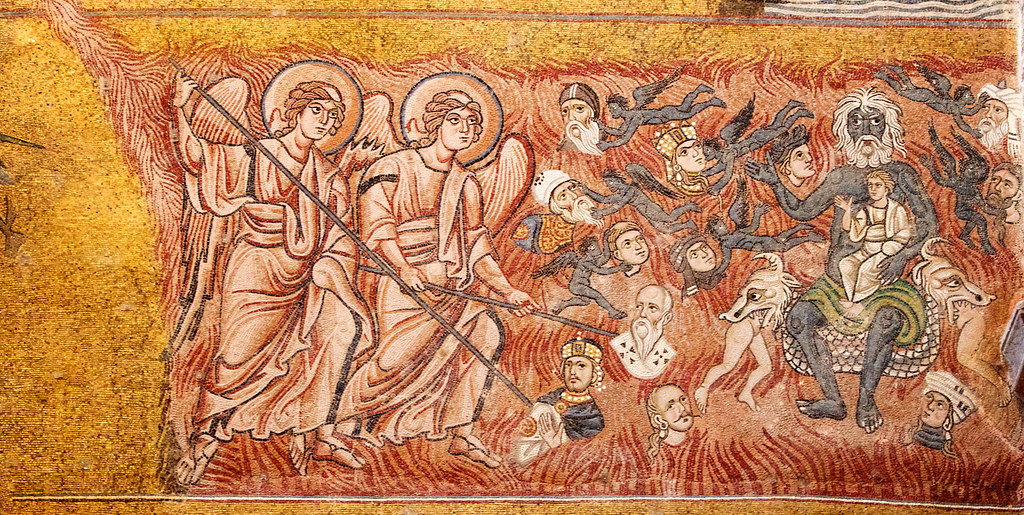
If anyone builds on the foundation with gold, silver, precious stones … [what each has contributed] will be revealed in fire; and the fire will test each one’s work, such as it is. If anyone’s construction work survives, that person will receive wages; if anyone’s work burns, that person will suffer a penalty; the person will, however, be saved … as if through fire. (1 Cor. 3:12-14)
Our work will be tested by fire. Sounds ominous. Dangerous. Even if there is the promise that the person will be saved by passing through the fire that destroys whatever the person has built. Ouch.
This idea of being tested by spiritual fire is rooted in ancient Greek construction and subcontracting practices: a subcontractor’s work would be tested by fire to see if it was up to the client’s expectations and the needs of the building itself. If the work failed the test–stonework and masonry could crack or was otherwise destroyed or damaged by the fire–the subcontractor didn’t get paid and a new builder was hired.
This idea–which also appears in 1 Peter 1:7–was often used in the medieval justification of the doctrine of purgatory as it developed. Debates between the Orthodox and the Roman Catholic theologians relied on this “test by fire” idea but the Orthodox said that the Roman Catholics took the idea too literally. In his response to the Latins about purgatory, St. Mark of Ephesus wrote that the punishment of the dead was internal, not external. (Recent Roman Catholic teaching has come to agree with this.) The dead suffered from sadness, conscious shame, and remorse, as well as their uncertainty about their future. According to St. Mark, even the biblical descriptions of eternal fire and worms in Hell were to be taken as allegories rather than as descriptions of external physical punishments and suffering. St. Mark insisted that the true suffering of the damned was the ignorance of God.
“Tested by fire” is also a way to describe how difficult circumstances before death can force people to give up false ideas about themselves and honestly face themselves. This kind of forced self-examination can help people admit who they are and the true effects of their behavior, thus enabling an honest re-orientation or re-direction of their lives and efforts.
It is facing the truth about yourself–when you can no longer do anything about it–that is the “punishment” of the dead, according to St. Mark of Ephesus. Maybe “the consequences of their actions” is a better way to phrase it than “punishment.” This “testing by fire” on earth anticipates and eases the testing by fire–however we might understand that–after death.
Read the first sermon of St. Mark of Ephesus about purgatory here.
